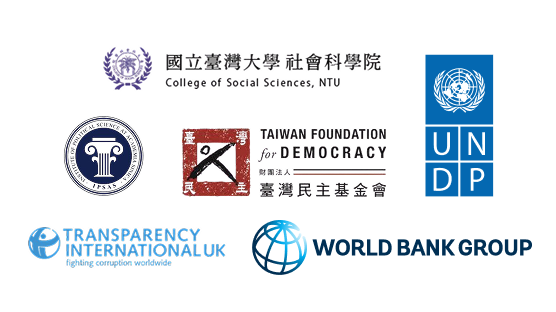Asian Barometer Survey (ABS) conducts comparative research on democratization experiences, laying the groundwork for East Asian regional studies and establishing an academic network for democratization surveys. This initiative incorporates East Asian democratization experiences into the mainstream of global democratization research and collaborates with other regional studies to construct a global network of democratization surveys.
Connecting East Asian democratization experiences.
The East Asia Democracy Research Team was established by Fu Hu, Professor Emeritus of the Department of Political Science at National Taiwan University. In 2000, the cross-national East Asia Barometer survey project, driven by Yun-han Chu, Professor of Political Science at National Taiwan University empirical research efforts. After 23 years, a total of six waves of surveys have been completed.
The survey covers 15 countries and regions, including Taiwan, and in addition to East Asia, South Asian countries such as Australia and India are also included. Combining scholars with cross-country comparative research experience, the study focuses on the modernization of socio-economic structure, the transformation and democratization of the political system, and the change of political costs in the East Asian region, under an integrated research framework and standardized surveys.
Data Open
Asian Barometer Surveys Research Planning Project(5 year term)
This is the sixth wave of the survey. The official interview period was from September 26, 2022 to December 11, 2022, and a total of 1,532 samples were collected.
Online Statistical AnalysisSurvey DataSurvey Data
Our Features
This center is a pioneering initiative in the field of international political science, being the first cross-national survey research project focusing on the democratization of the East Asia region. It is also the first regionally-led cross-national survey research initiative driven by East Asian scholars. The center has positioned Taiwan as a key hub for observing democratization in East Asia, as well as a coordination and integration center for comparative survey research in the region.

The ongoing large-scale cross-national survey research on democratization in Asia analyzes the changing levels of citizen support for democracy and the impact of political culture on the democratization process. It reflects the dynamic shifts in citizen trust in institutions, government performance, political participation, and attitudes toward authority, revealing how societies in various countries respond to political and social challenges amid modernization and globalization.
The research covers 18 countries and regions, including Taiwan, East Asia, Australia, and South Asian countries such as India, creating an international network for democratization studies. The survey collects citizens' views on political systems, democratic governance, social fairness, and economic conditions. By combining samples from East and Southeast Asia, the data enables cross-cultural comparisons, offering political scholars a valuable resource for analyzing the democratization process in Asia, considering the region's diverse political backgrounds and social-cultural characteristics.

All country teams adhere to a common research protocol to facilitate cross-national comparisons of public attitudes and opinions. This approach explores the level of support for democratic systems across East Asian countries (and regions) and analyzes the pathways through which these nations have embraced democratic values. By integrating East Asian democratization experiences into the global mainstream of democratization research, the initiative works alongside other regional studies to build a global network for democratization surveys. This collaborative effort aims to enhance understanding of democracy’s evolution across diverse political and cultural landscapes.

How We Conduct Surveys

Survey data is collected through face-to-face interviews. In cross-national studies, interviews are conducted in the respondent's preferred language to ensure inclusivity across different linguistic groups. In Taiwan, the survey targets citizens aged 20 and above who have reached voting age and hold the right to vote.

To ensure that every citizen in the surveyed countries has an equal chance of being selected, random sampling methods are employed to maintain fairness and representativeness. In Taiwan, the Probability Proportional to Size (PPS) sampling method ensures regional representation across all areas. Additionally, an expanded sample design is adopted to enhance data collection and minimize potential biases in the survey process.

Each survey wave includes multiple core question modules, allowing for repeated cross-year studies to analyze shifts in public attitudes on key issues over time. The standardized questionnaire design enables cross-national comparisons, offering a broader research perspective. Furthermore, survey questions are updated to reflect contemporary social contexts, incorporating new thematic modules to capture real-time societal changes.

Research Resources
To enable long-term follow-up studies of mechanisms and processes of the transformation and democratization of authoritarian regimes in East Asia, ABS has established long-term research collaborations with top domestic and foreign research teams and democratic research institutes. Facilitating comparative studies provides valuable insights into democratic development and shifts in civic consciousness, promoting innovation in the democratization research agenda.
Read More

